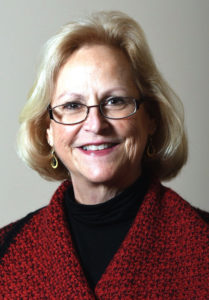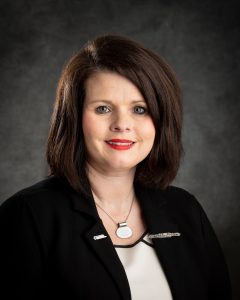By Autumn Shelton, WV Press Association
CHARLESTON, W.Va. – The West Virginia Legislature’s Joint Committee on Health on this week heard Direct Care Taskforce recommendations on methods to drive workforce recruitment and retention.
Industry experts asked lawmakers to consider policy recommendations geared toward improving overall healthcare-delivery for West Virginians.
Gaylene Miller, AARP state director, first discussed the need to address the state’s direct care workforce, saying, “Family caregivers provide much of the care their loved ones need, but they often cannot do it alone.”
When families need additional assistance, Miller explained, they must rely on paid professional-caregivers. However, these types of service providers are in increasingly short supply.
“We have an opportunity to use some of our remaining American Rescue Plan Act funding to target these direct care workforce issues and offset the costs associated with this important work,” Miller stated.
Miller said that AARP, in partnership with the West Virginia Department of Health and Human Resources Bureau for Medical Services, launched a Direct Care Taskforce in June to identify areas that will drive direct care workforce recruitment and retention.
Through a series of meetings with stakeholders, Miller said the taskforce identified three “critical areas,” including the need for improved compensation, increased educational opportunities and job design improvements.
Janie Lou White, director of Preston County Senior Citizens, Inc., added that direct care workforce shortages in rural areas will continue to worsen as the state’s population ages.
“I believe the issues identified by this taskforce will significantly increase our recruitment and retention of direct care workers if – and that’s an if – we act quickly and decisively to implement an integrated set of initiatives,” White said, before urging committee members to “study and support our final report.”
“Improved compensation means you respect and value the work that is provided,” White said. “Education and training enhances capabilities and builds a strong, confident workforce. Improved job design contributes to employee well-being and shows respect for the individual providing the care.”
The third speaker, Dr. Tara Hulsey, president of the West Virginia Board of Registered Nurses and Dean of the WVU School of Nursing, provided policy recommendations, included in the Nurses Workforce Study, which may address the state’s nursing shortage.
“I know the nursing shortage is certainly not a new thing for anyone in this state or even in this country,” Hulsey said. “It is not an easy fix. It is not an overnight fix, and it is a complicated situation.”
However, she noted that the study includes findings such as increased demand data needs from employers, a change in regulatory policy and increased educational opportunities and funding, to assist with recruitment and retention.
One study example White provided is to reinstate funding for the West Virginia Center for Nursing through the $10 supplemental licensing fee for Registered Nurses. She said that when that funding source had been eliminated, it took away 75 percent of the funds that supported statutory mandates, like funding the nursing scholarship program.
Additionally, White said that continued support of the Balance WV campaign – which recruits out of state nurses by providing them bonuses – is necessary, noting that, “Between May and September 2022, 100 nurses were recruited into the state because of the campaign.”
Delegate Heather Tully, R-Nicholas, then spoke of prior concerns about West Virginia Center for Nursing data and the supplemental licensing fee, before asking a couple of questions:
“The data collection element of their duties got removed from statute, is that correct?” Tully asked. “Do you know why your predecessor did not go through the legal remedies to move data forward through the court system, because it would have had the force of law to compel it forward?”
Hulsey responded that she has “no personal knowledge of that,” but that the center now serves as “such a valuable resource for the state.”
“I would agree that the data is very important,” Tully said. “So, that was why I was somewhat concerned that it was taken out of statutory requirement, and then I don’t really think the center functioned well after that. I think there were some major issues.”
Tully concluded by stating that since no other health science discipline in the states requires members to fund their own scholarship program, she has concerns about “charging a supplemental fee to nurses, especially LPNs who are probably not the most well compensated to fund PhD’s and Master’s degrees.”
In other testimony before the committee, Dr. Tim Lefeber, general pediatrician at WVU medicine, spoke on the Tobacco Use Prevention and Cessation Taskforce, noting, “Prevention is where we can really make a difference.”
According to Lefeber, the program currently receives $445,000 for cessation and prevention efforts from the state. He then explained that recommendations indicate at least $16.5 million is needed annually to counter aggressive marketing campaigns geared toward children, especially by makers of vaping devices, which have become the “newest and most dangerous threat” to the state’s youth.
Lastly, Dr. Jeffson Chung, spoke regarding the Oral Health and Cancer Rights Act.
“West Virginia has the highest rate of mouth and throat cancer, and we are number three for voice box cancers,” Chung stated.
As a result,Chung said the state should also be leading the nation in patient oral health care.
He proposed that dental services be considered essential, since many patients cannot afford them, especially when it comes to cancer care.
The act seeks to remedy this by requiring that health insurance plans cover oral health services necessary to receive cancer treatment, according to Chung. Additionally, following surgery, oral health is still required, so the act will require that insurance plans “cover health procedures to restore functions lost as a result of cancer treatment.”
“That will improve cancer survival rate,” Chung noted.







